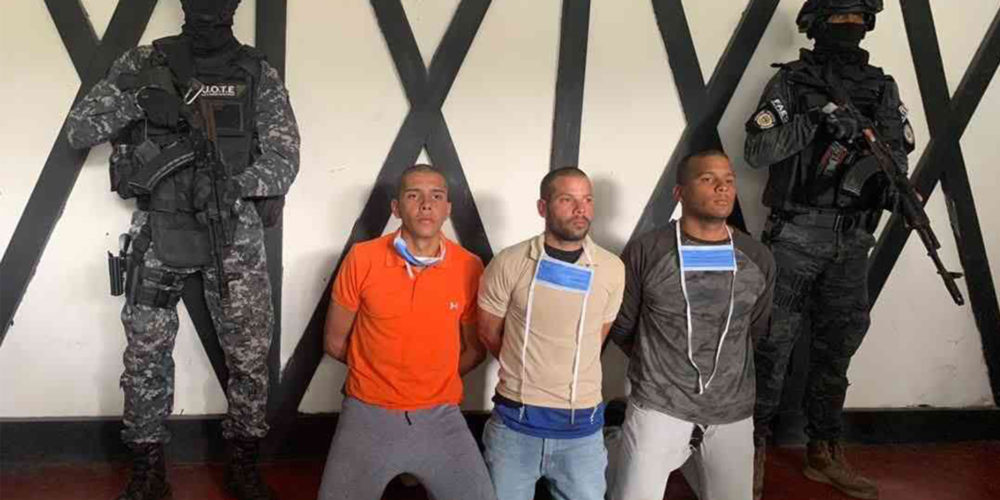In Venezuela the month of May began with a bang. A group of mercenaries—North American, Colombian, and Venezuelan, armed and trained in Colombia with the participation of drug-dealing paramilitaries, the Drugs Enforcement Administration of the United States, and the benign surveillance of the Colombian government—mounted an invasion of Venezuela. The Drugs Enforcement Administration, officially charged with combating the drugs traffic, has no problem forming an alliance with major drug-traffickers.
The armed group left the coast of Colombia in speedboats and landed on the coast of Venezuela at La Guaira, near the airport and only an hour’s drive from Caracas. Their mission was reported as being to seize the airport and kidnap President Maduro.
How they were expecting to accomplish this without major reinforcements is not clear; perhaps they were attempting to prepare the ground for a greater force. This would mean they were part of a much larger plan.
Anyway, thanks to good intelligence, the Venezuelan armed forces were able to meet them on their arrival, killing eight of the invaders and taking most of the rest prisoner. Another group was taken into custody nearby by fishermen, members of the militia. Since then some stragglers have been rounded up, making a total of about forty.
It was impossible for this adventure not to be reported, even by the corporate media. Of course such a disastrous failure could not be acknowledged by its instigators: Pompeo rather cryptically claimed that the United States was not “directly” involved; perhaps its involvement was indirect.
Juan Guaidó chose the lie direct, denying anything to do with it, though his signature was on a contract signed with the mercenary company Silvercorp, headed by Jordan Goudreau,an ex-officer of the US Army Special Forces. Silvercorp was to take charge of security in Venezuela, under Guaidó’s government, for a fee of $200 million. It was also promised a down payment of $1½ million, which apparently was not paid. It has been reported that Goudreau is suing him.
The spectacular defeat of the invasion demonstrates the vigilance and efficiency of Venezuela’s defenders, from the army to the militia members, like the fishermen of the coastal village of Chuao. It also illustrates the desperation of the extreme fascistic right wing around Guaidó, and of its backers, especially the United States, its allies, and its client states.
As elsewhere on the continent, the chief accomplices and agents of the United States are major drug-traffickers, who are close allies of the governments in a number of countries, Colombia and Honduras for example. Trump, accusing the Venezuelan government of promoting the drug trade, is directly allied with the greatest drug-traffickers on the continent.
The drugs business in the United States itself bears most heavily on the poor, and serves to divide and weaken the working class. The “war on drugs” is more of a “war of drugs”; those who proclaim it perpetrate it.
The series of defeats suffered by Juan Guaidó and his backers, and the resounding victories of the Chavistas in the face of economic war, attempted coups d’état, and terrorist attacks, has by no means altered the determination of the US regime and its allies to overturn the government of Nicolás Maduro and destroy the social progress achieved by the Chavista movement.
Now Trump has brought the US Navy into the Caribbean to blockade Cuba and Venezuela, and is explicitly threatening an invasion. This continuing aggression threatens not only Venezuela, of course, but the peace of the whole world.
A great mobilisation of all who value peace and progress is needed to bring this aggression to an end. Venezuela is now in the front line for humanity.






